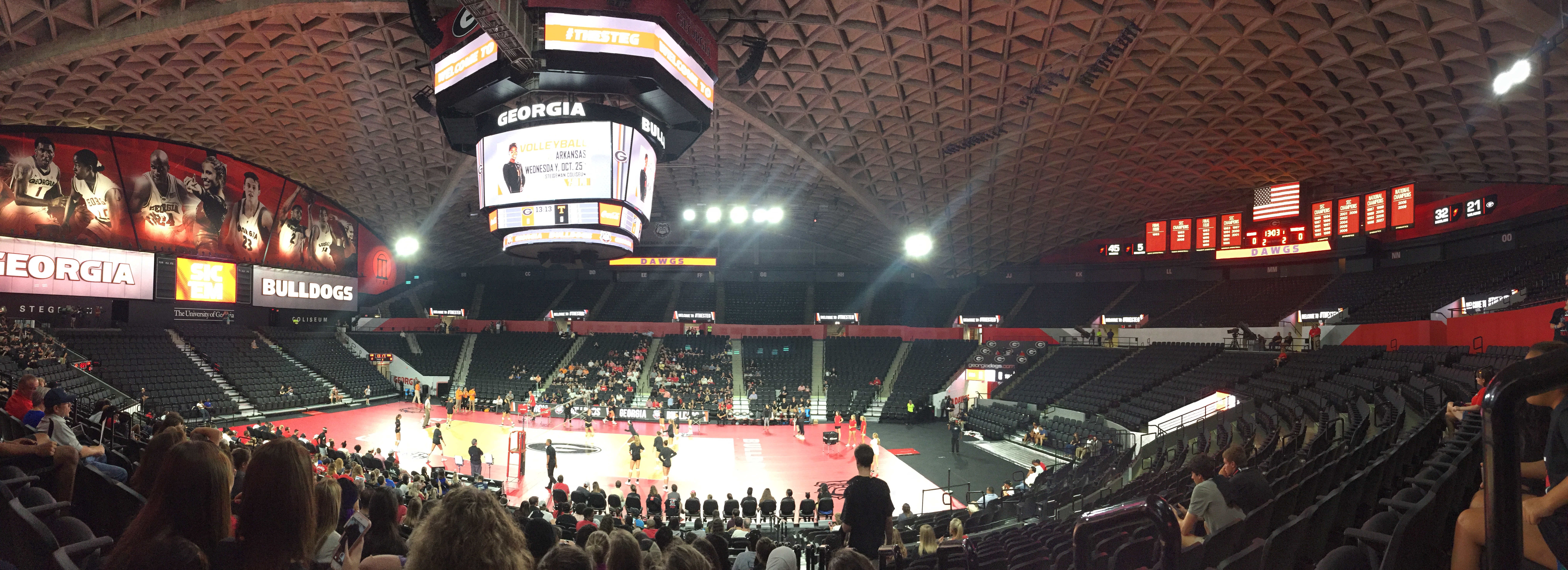Pre-Departure:
It is a unique experience considering a study abroad programme as a queer individual. Current global political trends can make it tricky to navigate where exactly it is safe and comfortable for queer students to study, however ‘never fear little queer’ because there are plenty of ways to find the place just for you.
I chose a continent where I knew and understood the politics, the USA. When it came to selecting an institution I obviously first looked at whether they offered what I needed, namely a Linguistics or Communication course. An added element that I believe we, as queer people, need to consider when selecting an institution is the support systems in place for the LGBTQIA+ community. I specifically searched for student societies and googled how prominent the queer community is at the university and in the town. This is when I stumbled upon UGA’s LGBT Resource Center and was blown away. In addition to a great Linguistics department at UGA, the Resource Center was the final factor in my decision. This is saying a lot considering that Georgia forms part of the Deep South and has generally very conservative values. The more I researched about UGA and the town of Athens, the more I began to understand that the campus and town reflected more liberal values than the rest of the state.
There is a lot of admin involved in an exchange program, from the application to the visa. My advice is to start as soon as possible. These things take patience. As a Namibian studying at Stellenbosch University, I could apply either in Cape Town or in Windhoek for my J-1 visa. Windhoek’s US Embassy is super fast and after your interview it is only 2 days until you have your visa. If you have the time and money to go back to Windhoek and get your visa, I strongly recommend it.
Experience at UGA:
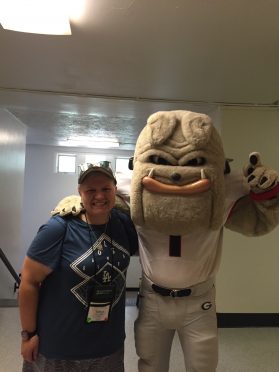
Glory glory to ole Georgia! I arrived in the middle of summer and to say it was hot would be an understatement. Athens is about two hours drive from Atlanta. Once I arrived on campus it looked exactly like what you would expect from the movies: football, fraternities, and food. After a very informative week of orientation, we had about another week to get settled in before class started. I used this time to set up my bank account (Bank of America) and cellphone (T-mobile) as well as make my room as comfortable as possible (I suggest going to Target).
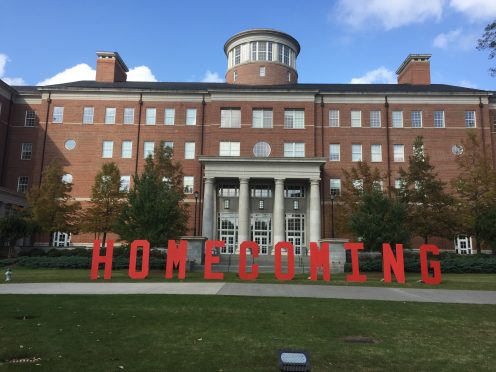
I was super excited for class to start and lucky for me most of my classes were in the same building (The MLC). An interesting way that UGA coordinates its timetable is that Monday, Wednesday, and Friday schedules are all the same with 45min classes and Tuesday and Thursday schedules are the same with 90min classes. The four classes I took included: Interpersonal Communication, Languages in Contact, Language Culture and Gender, and African Languages and Cultures. These were all undergraduate classes, but two of them were a combination of Masters students and 4th year students. Besides the Interpersonal Communication class, all my classes had 30 people or less. This is very different to what I experienced at SU ay an undergraduate level. The professors create a very relaxed environment and put a lot of emphasis on getting to know their students. This makes it easy to ask your professor about any issues you may be having in class or with an assignment. Exams and tests were really easy because they do not count so much toward your final grade, unlike at SU. Two of my classes in fact didn’t even have tests or exams, only assignments.
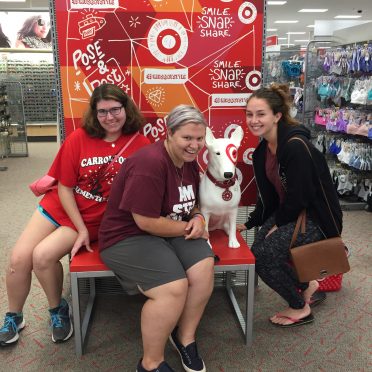
Obviously, exchange is more than just about the academics. I looked around for societies and organisations I could get involved in and UGA has A LOT! However, I was drawn by the LGBT Resource Center and so decided to see whether I could get involved somehow. The Resource Center is super cool, it has couches to chill on, desks to work at, and even a TV to keep up with current affairs. I decided to join the Center’s podcast called Queeries. It was so much fun and I made some great friends. I also attended various events that the Resource Center coordinated such us panel discussions with LGBT staff and even a quiz night.
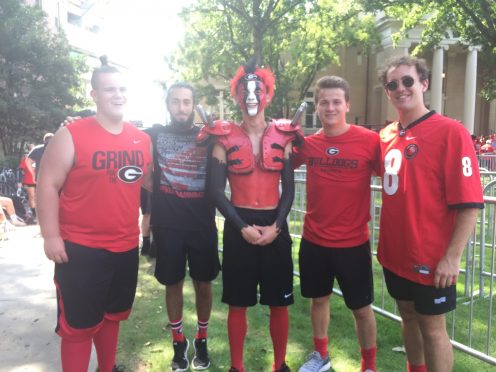
Beyond my involvement in academics and organisations, I loved the fact that it was football season. Go Dawgs! Wow, what an event it is at UGA – almost as though the whole world comes to a standstill for that game. It helps of course that UGA has one of the best teams in the league (we actually made it to the championship final but lost to Alabama). Students get cheap season tickets for home games and it is well worth the money!
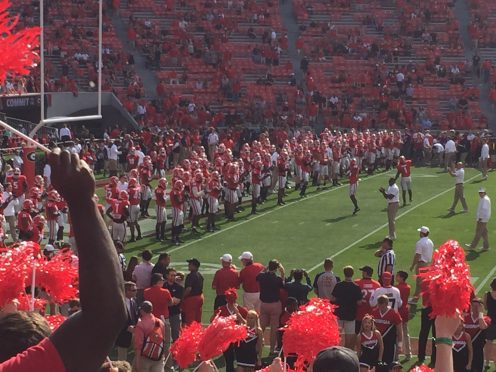
The campus is huge and beautiful, and if you are thinking of going to UGA I recommend that you try and see every corner of it and also make use of its fantastic facilities. The accommodation and food is truly amazing. UGA’s dining halls are something else… you have an abundance of choice and it’s even a great place to sit and work.
Return to Stellenbosch:
I have not been back for long and the time I have been back has been spent sorting out my apartment, but as I sit and reflect on my experience as well as the future there is definitely a lot to say about the impact of an exchange.
There are obviously small adjustments like getting used to using the Rand again, the slower internet, and other general culture shock stuff. The most precious thing I took from my exchange was the connection I made with my professors and peers. Many of the professors were so interested in my research that they made it clear that they would like to stay in contact with me. The peers and professionals I met through the LGBT Resource Center, who had such a big impact on the success of my exchange, have become personal mentors and good friends. I am currently looking as to whether I could possibly complete my PHD either at UGA or somewhere else in the United States.
It is so easy once you are back home to forget that the exchange even happened- sometimes it actually just feels like a dream- but then I contact those whom I met along the way and they remind me of how concrete the experience was. I made lifelong friendships and learnt so much about myself. It is a little challenging to adjust to the South African pace of things, but instead of complaining I will take what I learnt at UGA and try and better my experience at SU.

